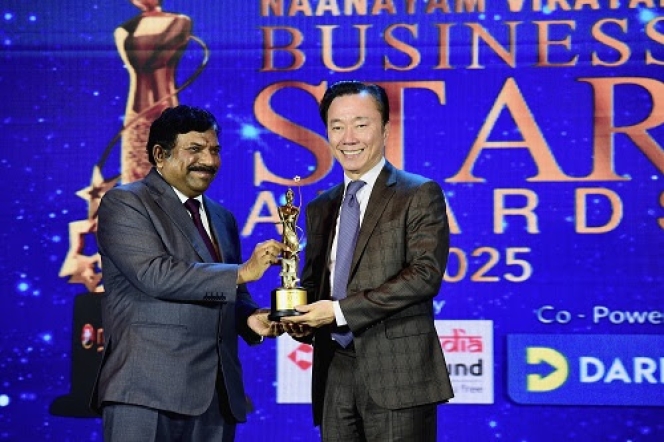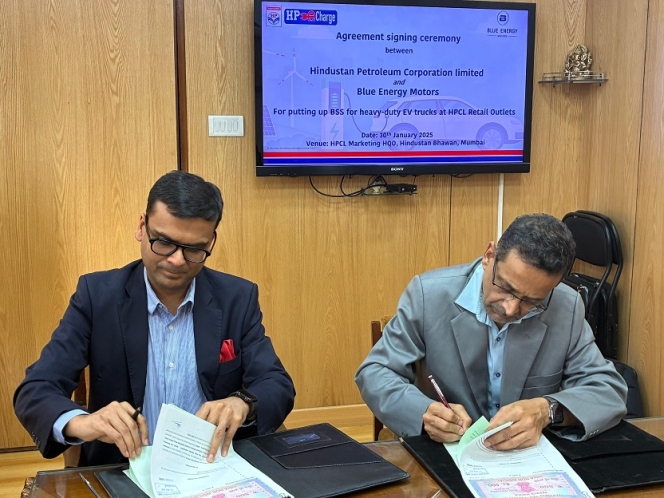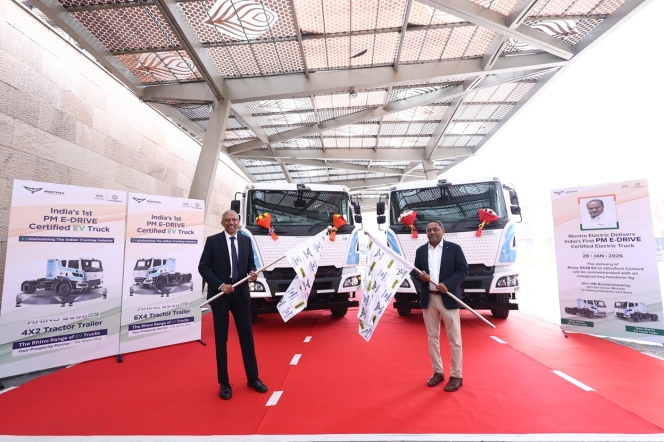World EV Day Coincides With Fall In Battery Cell Prices
- By Bhushan Mhapralkar
- September 08, 2023

It could be termed as a fine coincidence that the World EV Day has the EV industry the world over witnessing a fall in battery cell prices below the USD 100 per kWh mark for the first time in two years. The latest average price from the Benchmark Lithium-ion battery cell price assessment is USD 98.3 per kWh approximately and the reason being attributed is the near halving of Lithium prices in China as its economic continues to slowdown.
For India, which is touted as the world’s fastest growing electric micro mobility market in the world, the news should make the electric vehicle industry happy even though not many would be keen to immediately pass on the benefit to its customers. In India, most electric vehicles feature Lithium-ion battery packs with cells that are sourced from China, Korea or Taiwan. Those that are being made at a very small scale have the material coming from markets such as China where the prices off late have been turning quite lucrative.
Speaking on the eve of the World EV Day, Sanjay Gopalakrishnan, Senior Vice President of Electric Passenger Vehicle Business at BYD India, said, “Today, as we mark World EV Day, we are celebrating a sustainable future in motion and charging ahead into an electrified era. Let’s embrace the power of electric vehicles to drive positive change for our planet and future generations. With the launch of our #GoGreenWithBYD campaign, we aim to inspire every individual to embrace sustainable lifestyles and contribute to a cleaner, greener future for all.”
Sameer Agarwal, Founder and CEO, Revfin Services, mentioned, “On this special day, we celebrate not just the technology but the people and communities coming together to create a sustainable tomorrow. At Revfin, we believe that the road ahead is electric, and we're driving change.”
Sandiip Bhammer, Founder and Co-Managing Partner, Green Frontier Capital, averred, “For India to truly embrace EVs, we must catalyse a nationwide ‘charging revolution’. It's not merely about rolling out electric cars; it's the backbone of power behind them which truly counts. The heart of our modern mobility lies in every strategically placed charging station and every innovative solution we bring to the table. We envision a landscape wherein electric chargers are as commonplace as our current petrol pumps, seamlessly integrated into the rhythm of daily life. It's a dance of technology and infrastructure, a harmony between innovation and tradition. An electrified road is no longer a distant dream, but a reality we must confront. This is the future India not only needs but rightfully deserves.”
Namit Jain, Co-founder and CEO, Rupyy, said, “As we commemorate World EV Day, we're reminded that we stand at a pivotal juncture akin to the early days of the internet—globally symbolised by Tesla's transformative impact and Europe's robust green policies. In India, the two-wheel electric vehicle sector has exhibited a robust growth of 60 percent in H1CY23, capturing a seven-percent market share from just 1 percent two years prior. While challenges persist—ranging from high initial costs to infrastructural gaps—the landscape is ripe for disruption. One such avenue is the evolving fintech sector, which is playing an increasingly significant role in EV adoption by streamlining financing options. From a 30 percent to 40 percent surge in EV financing penetration in recent months, fintech innovations are effectively democratising access to electric mobility. Supported by government initiatives, technological breakthroughs, and financial ingenuity, we are confident that India is steering towards a sustainable and electrified future.”
Ketan Mehta, Co-Founder and CEO, HOP Electric Mobility, expressed, “Global climate concerns have been driving nations toward sustainability. India's pledge for carbon neutrality by 2070 spurs interest in New Energy Vehicles (NEVs) like, Hydrogen Fuel Cells, Electric Vehicles (EVs), among other options. Electric Vehicles’ adoption has been gaining traction due to their lower carbon footprint and cost-efficiency. In the first-half of CY-2023, the segment has experienced consistent sales, surpassing the 100,000-unit mark each month according to government estimates. Efforts are also underway to establish a nationwide charging network by the government and companies collaboratively. We are expanding our 'HOP Infinity Energy Network’, which we piloted in Rajasthan. We are now rolling it out to other states.”
Mayank Bindal, Founder and CEO, Snap E Cabs, averred, “At Snap-E it would be fair to say that the entire company has imbibed the CSR ethos; We believe that solving some of the most pressing transportation problem for our customers in a profitable way and leading the way to help adopt sustainable practices and helping the planet are not two different goals. They are one and the same.” With about 400 plus cabs (all 100 percent EV) in operations, Kolkata based Snap-E is among the largest EV Cab fleet owners in the country.
Rajat Verma, Founder and CEO, Lohum, said, “Lohum's activities are driving change by building a sustainable supply of energy transition materials. By pioneering solutions that turn EV batteries and critical material waste into virtually infinite value, we pace toward a future that makes full use of its resources and takes accountability for our planet.”
Narayan Subramaniam, Co-Founder and CEO, Ultraviolette Automotive, mentioned, “Electric mobility in India is on the rise and we at Ultraviolette are proud of our contribution to this transformation with our flagship product - the F77. We believe the value of electric vehicle technology lies not just in functional use case segments but also in exciting, performance driven segments. India is now an emerging leader in the global EV arena demonstrating rapid EV adoption consistently. We applaud the initiatives undertaken by the government and industry to bolster this transition, including the FAME II scheme and the PLI scheme. These policies not only offer financial incentives to manufacturers and buyers but also provide crucial guidance to the ecosystem.”
Nitin Kapoor, Managing Director, Saera Electric Auto Ltd, expressed, "With 40 different types of vehicles and USD 4.23 billion market value, the Indian EV market stood at 11th position in the world on the readiness index. Thus, there is an urgent need to accelerate the EV transition of the country in line with sustainable development goals. The large market with huge domestic demand augurs a golden future for green mobility in India. Electric rickshaws, which are phenomenal in first and last-mile connectivity in metros and providing affordable commutation to sub-urban and rural populace, can further propel India’s EV industry with government support. The industry seeks a more amicable approach from the government with favourable initiatives like subsidies, lower taxes, simple financing alternatives, development of EV charging infrastructure, and establishment of uniform infrastructure standards. These measures are essential in driving India towards a more sustainable future powered by electric vehicles".
Ankit Mittal, Co-Founder and CEO, Sheru, said, "India’s EV sales are at a tipping point, with this being the first year that sales of EVs going past the five-percent mark of all vehicles sold. This is an important figure. India’s EV sector has thus crossed its infancy stage and is poised to enter the rapid growth stage. While we look back at what has been achieved with satisfaction, we must also be prepared for what is to come next. If we implement our plans and execute it well, India’s mobility sector will witness a transformation in the coming years. Sheru is leading EV sustainability from the front".
Ashish Deswal, Founder, EarthtronEV, averred, "With more people shifting to EVs, the Indian electric vehicle market size of USD 4.23 billion in 2023 is expected to grow at a CAGR of 68 percent to reach USD 152 billion by 2030. The country aims to achieve 100 percent electric mobility by 2030, which requires rapid expansion of EV charging infrastructure. Still, the charging infrastructure is not sufficient to provide an adequate pace for mobility transition. Besides, a move towards standardisation of EV charging connectors is necessary to benefit the EV charging industry and accelerate the transition to sustainable transportation".
- VinFast
- Investor of the Year
- Urban Electric Vehicle of the Year
- VinFast VF 7
- Motor Vikatan Awards 2026
VinFast Wins Dual Honours In India For Investment And Electric SUV
- By MT Bureau
- January 31, 2026

VinFast’s strategic progress in India has been further validated through recent accolades from the influential Vikatan Group media network. The company was distinguished with two significant awards: one recognising its substantial investment commitment, and the other honouring its VF 7 model as the premier urban electric vehicle for 2026. These commendations underscore the brand’s deepening integration into the Indian automotive sector, highlighting both its industrial strategy and its product relevance.
The title of Investor of the Year, conferred by Nanayam Vikatan business magazine, specifically acknowledges VinFast’s landmark commitment to establishing an electric vehicle manufacturing facility in Thoothukudi, Tamil Nadu. This project is noted not only for its scale and strategic clarity but also for its anticipated role in fostering a new industrial corridor, generating employment and bolstering the local supplier network. It aligns with national initiatives like Make in India and reflects confidence in the region’s manufacturing potential.
Concurrently, the VF 7 electric SUV was named Urban Electric Vehicle of the Year at the Motor Vikatan Awards 2026. This recognition from automotive experts underscores the model’s successful adaptation to India’s urban driving conditions, balancing design, performance, safety and comfort. It serves as a testament to VinFast’s product development focus and its localisation strategy aimed at meeting specific market demands.
As a respected media institution in South India with a legacy dating to 1926, the Vikatan Group’s awards carry considerable weight among businesses and consumers. These latest honours add to a growing list of VinFast’s achievements in the market, illustrating the convergence of its investment, manufacturing, and product efforts. Within a short timeframe, the company has employed a long-term strategy encompassing manufacturing, retail, charging infrastructure and after-sales services. Through this comprehensive approach and a focus on sustainable innovation, VinFast is steadily building its brand presence while contributing to India’s transition towards green mobility.
Pham Sanh Chau, CEO, VinFast Asia, said, “Being recognised in two important award categories demonstrates how VinFast is steadily building its position in India, not only through long term investment commitments but also through products developed to match local conditions and user needs. This recognition provides further momentum for us to accelerate implementation, expand the electric vehicle ecosystem, and maintain a long-term partnership with the Indian market.”
B Srinivasan, CEO, Vikatan Group, said, “VinFast India represents the new-age investor – bold in vision, swift in execution and deeply aligned with India’s growth story. By unravelling the true potential of the port city of Thoothukudi, VinFast India has helped create a conducive industrial ecosystem, played a positive role in employment generation and restored the city’s importance on India’s manufacturing map. Their investment is not just capital at work but confidence in India’s future.”
Blue Energy Motors And HPCL Forge Nationwide Pact For Electric Truck Battery Swapping
- By MT Bureau
- January 30, 2026

Blue Energy Motors and Hindustan Petroleum Corporation Limited (HPCL) have entered a strategic partnership to deploy Battery Swapping Stations for electric commercial trucks at select HPCL fuel outlets nationwide. This initiative leverages HPCL’s extensive network of over 24,400 retail locations to create a widespread and convenient energy infrastructure for freight operators. By situating swap stations within established fuelling hubs, the collaboration seeks to make electric mobility a practical and scalable reality for India’s logistics sector.
The core advantage of battery swapping lies in its dramatic reduction of energy replenishment time to under five minutes, minimising vehicle downtime compared to conventional charging. For fleet operators, this efficiency translates into higher vehicle utilisation, improved productivity and more predictable scheduling. Furthermore, a growing and accessible network of swap stations alleviates range anxiety, enabling electric heavy-duty trucks to confidently undertake longer routes and multiple shifts.
As India advances its green transportation goals, this alliance holds significant strategic value. HPCL’s vast retail footprint, which already supports over 5,400 EV charging points under its HP e-Charge brand, offers a ready platform for rapid infrastructure deployment across key freight corridors. Blue Energy Motors, a pioneer in zero-emission freight solutions, brings its expertise in electric commercial vehicles, exemplified by its launch of India’s first electric freight corridor. Together, the companies aim to accelerate electric vehicle adoption by directly addressing the operational needs of commercial fleets, thereby strengthening the long-term development of sustainable freight transport in the country.
- Eicher Trucks and Buses
- VE Commercial Vehicles
- VECV
- India Book of Records
- IBR
- Eicher Pro X
- Vinod Aggarwal
- SS Gill
- Abhishek Chaudhary
Eicher Pro X EV Completes Kashmir To Kanyakumari Journey In 6 Days
- By MT Bureau
- January 28, 2026

Eicher Trucks and Buses, part of VE Commercial Vehicles (VECV), has completed a journey from Kashmir to Kanyakumari using its Eicher Pro X EV.
The record verified by the India Book of Records (IBR), saw the electric vehicle cover over 4,000 kilometres in 6 days under loaded conditions. The run commenced in Srinagar on 20 January 2026 and concluded in Kanyakumari on 26 January 2026, traversing the Himalayas, plains and the Deccan Plateau.
Throughout the expedition, the vehicle utilised public chargers located via the MyEicher App. An adjudicator from the India Book of Records accompanied the truck to monitor route compliance, load, distance and charging stops. The mission served as a demonstration of electric vehicle endurance across diverse altitudes and climates to validate the technology for logistics corridors.
The journey was intended to show that electric commercial vehicles can operate beyond short-haul deliveries. By maintaining performance across hilly and coastal routes, the Pro X EV aimed to establish total cost of ownership (TCO) benefits and maintenance predictability for fleet operators. The successful completion of the route suggests that current charging infrastructure can support long-haul electric freight movement.
Vinod Aggarwal, MD & CEO, VE Commercial Vehicles, said, “For more than four decades, Eicher trucks and Buses have earned customer trust through leadership in fuel efficiency and application-specific engineering. The record-setting performance of the Eicher Pro X reinforces our unwavering focus on application excellence, reliability, and performance, anchored in robust product development and manufacturing capabilities, and enabled by a customer-centric, pan-India commercial and dealer network. I commend the entire Eicher team for achieving these well-deserved records”.
SS Gill, Chief Commercial Officer, VE Commercial Vehicles, said, “By covering the K2K route with a loaded Pro X EV, Eicher Trucks & Buses has proven that electric mobility is no longer restricted to short-haul, ‘last-mile’ deliveries. We are not just setting records, but through the strength of our service network and extensive dealer set-up, we are demonstrating that our EV technology is commercially viable, reliable, and has the range to serve as the backbone of India’s green logistics corridors”.
Abhishek Chaudhary, SVP – SCV Sales & Marketing, VE Commercial Vehicles, said, “The Eicher Pro X EV was put to the ultimate test – covering over 4000 kilometres across diverse climates and challenging altitudes. With this recognition from the India Book of Records we’ve moved beyond our own stringent testing benchmarks to real-world validation - Demonstrating that Eicher Pro X EV is a dependable partner for logistics movement across varied operations in India”.
- Montra Electric
- Murugappa Group
- PM E-Drive Scheme
- Rhino 5538 EV 6x4 Tractor trailer
- Narendra Modi
- H D Kumaraswamy
- Arun Murguappan
- Sathia Raj
- UltraTech Cement
Montra Electric Becomes First OEM To Receive PM E-Drive Certification For Heavy Trucks
- By MT Bureau
- January 28, 2026

Montra Electric, the electric medium and heavy commercial vehicle business of the Murugappa Group, has become the first manufacturer in India to receive certification for heavy-duty electric trucks under the government's PM E-Drive Scheme.
To mark the achievement, the company delivered a Rhino 5538 EV 6x4 Tractor trailer to UltraTech Cement. The handover took place in the presence of Arun Murugappan, Chairman of Montra Electric and Sathia Raj, Chief Procurement Officer of UltraTech Cement.
The PM E-Drive scheme includes a budget of INR 5 billion specifically for electric trucks, providing a benefit of up to INR 960,000 per vehicle for the Rhino 5538 EV. This incentive is intended to lower operating costs and reduce exposure to fuel price volatility for fleet operators in the logistics, mining, and manufacturing sectors. The Rhino 5538 EV range is designed for Indian conditions and is available in 6x4 and 4x2 variants.
The Rhino 5538 EV 4x2 variant features a 282 kWh LFP battery that produces 380 HP and 2000 Nm of torque. It offers a range of approximately 198 km under standard test conditions and supports six-minute battery swaps. These specifications suit the vehicle for high-utilisation applications in ports, steel plants, and cement logistics.
H D Kumaraswamy, Union Minister for Heavy Industries, said, "The PM E-Drive scheme is a testament to the growing prowess of Indian innovation in the heavy-duty electric vehicle segment. Under the visionary leadership of Prime Minister Narendra Modi, we are committed to decarbonizing our logistics and making India a global hub for EV manufacturing. Electric trucks are pivotal to our Net Zero goals, and by fostering a self-reliant ecosystem through such certifications, we are driving the spirit of Atmanirbhar Viksit Bharat. We are very happy to see our Prime Minister’s vision coming to life with the 1st PM E-Drive certified heavy duty electric truck from 'Montra Electric' getting delivered today."
Arun Murugappan, Chairman, Montra Electric, said: “Decarbonising freight is one of the most critical challenges in India’s energy transition. We are grateful to the Government of India and our Prime Minister Narendra Modi for introducing forward-looking and progressive policy frameworks such as the PM E-Drive Scheme, which represent a welcome and transformative step in accelerating this shift, particularly in heavy commercial vehicles where emissions intensity is high. At Montra Electric, we are proud to contribute to this national mission by delivering technologically advanced, reliable, and scalable electric M&HCV solutions that can drive meaningful and lasting change in India’s mobility ecosystem.”








Comments (0)
ADD COMMENT